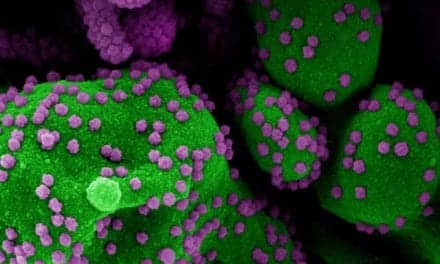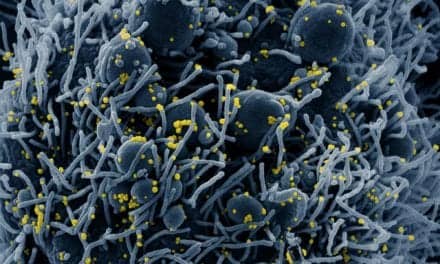Two phase 2 trials will evaluate the safety and effectiveness of the therapies for symptoms such as fast heart rate, dizziness, and fatigue.
Two phase 2 clinical trials to test the safety and effectiveness of three treatments for adults with autonomic nervous system dysfunction from long COVID have begun.
The autonomic nervous system acts largely unconsciously and regulates bodily functions, such as heart rate, digestion, and respiratory rate. Symptoms associated with autonomic nervous system dysfunction have been among those that patients with long COVID say are most burdensome.
The trials are part of the National Institutes of Health’s Researching COVID to Enhance Recovery (RECOVER) Initiative, a nationwide research program to fully understand, diagnose, and treat long COVID. Other RECOVER phase 2 clinical trials testing treatments to address viral persistence and neurological symptoms, including cognitive dysfunction (like brain fog), launched in July 2023.
The two trials, collectively known as RECOVER-AUTONOMIC, are testing three potential treatments in adults who, following COVID-19, now have postural orthostatic tachycardia syndrome (POTS). An autonomic nervous system disorder, POTS is characterized by unexpected fast heart rate, dizziness, fatigue, or a combination of these symptoms when a person stands up from sitting or lying down.
“The trials were developed with input from people living with long COVID, caregivers, community representatives, clinicians, and scientists all with unique expertise in the field,” says Gary H. Gibbons, MD, director of the National Heart, Lung, and Blood Institute at the NIH and co-chair of RECOVER, in a release. “We are grateful for their collective involvement which significantly shaped the trials and the choice of interventions.”
The trials will initially examine three potential treatments:
- Gamunex-C, a form of intravenous immunoglobulin, contains antibodies to help the body protect itself against infection from various diseases and is given by intravenous infusion.
- Ivabradine, an oral medication that reduces heart rate.
- Coordinator-guided, non-drug care, which includes a series of activities managed through weekly phone calls with a care coordinator, such as wearing a compression belt and eating a high-salt diet, which are recommended for patients with POTS to counteract excessive loss of fluids.
“Patients who develop POTS after having COVID-19 are often severely limited by their symptoms, and there are no proven effective treatments,” says Christopher Granger, MD, Duke University Medical Center, who is co-leading RECOVER-AUTONOMIC, in a release. “These interventions were selected because they have shown potential benefit in treating symptoms for POTS. The theory we’re testing is that they might also help individuals with long COVID.”
Participants will first be randomly assigned to receive either intravenous immunoglobulin, ivabradine, or a placebo. Participants will then be randomly assigned a second time to receive either coordinator-guided, non-drug care or what is considered the usual non-drug care for POTS following COVID-19, such as diet and lifestyle recommendations. RECOVER-AUTONOMIC is an adaptive clinical trial, meaning if additional potential interventions emerge, they can quickly be added and studied in the trial.
Researchers plan to enroll 380 total participants at 50 sites across the United States. Teams at the trial sites will recruit participants from their health systems and surrounding communities. Diversity among the trial participants is a high priority for RECOVER. To support diverse and inclusive representation, study sites are chosen based on geographic location, their connections to communities, and their track records for enrolling diverse research participants.
With the launch of the RECOVER-AUTONOMIC trials, RECOVER is currently testing seven treatments across four clinical trials and continues to enroll participants.
Photo 170384630 © Transversospinales | Dreamstime.com










